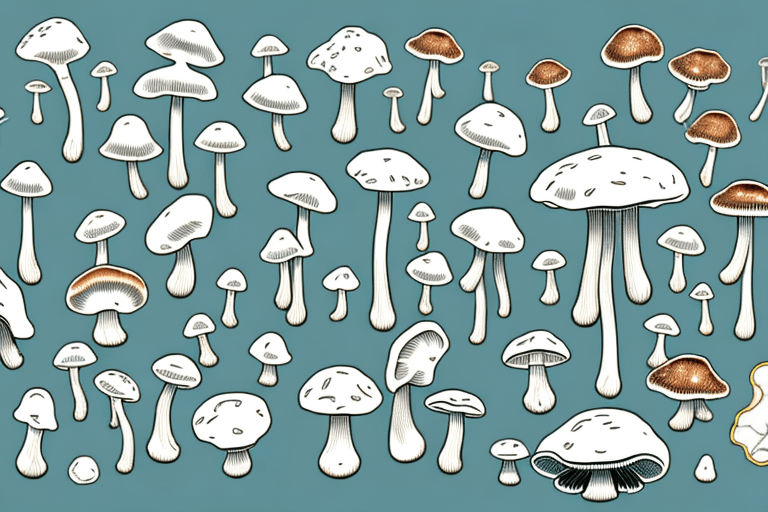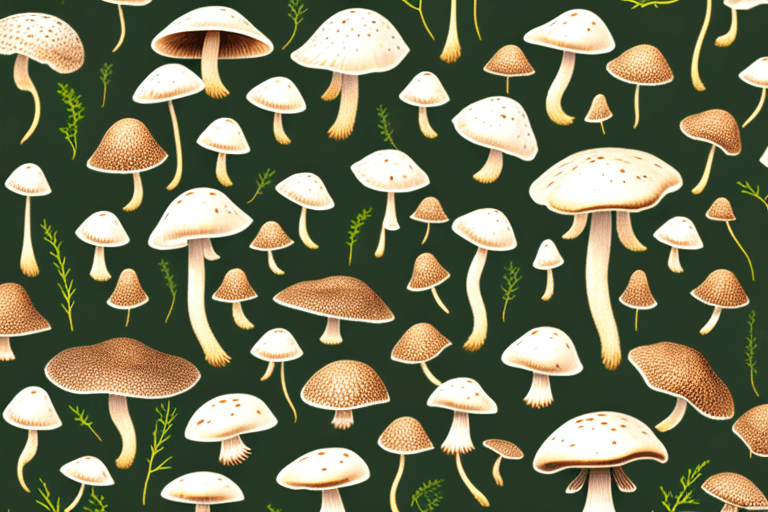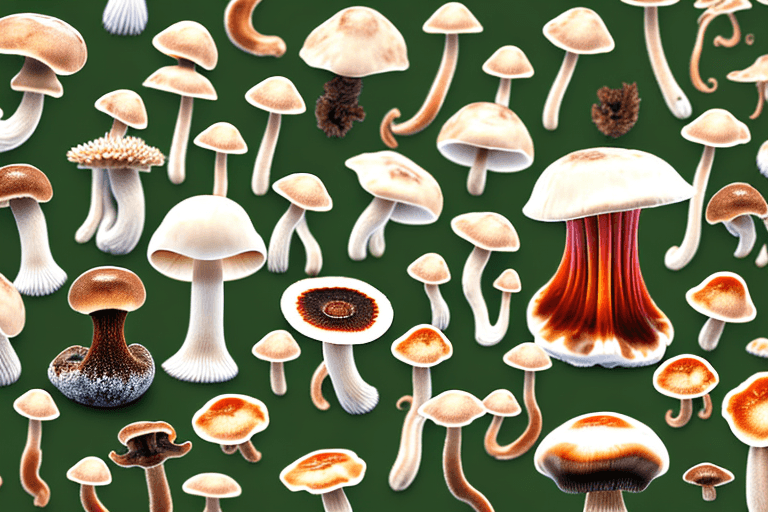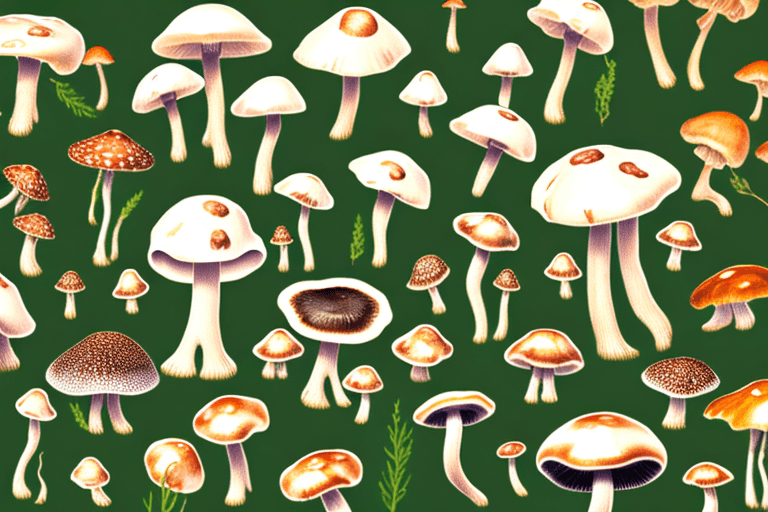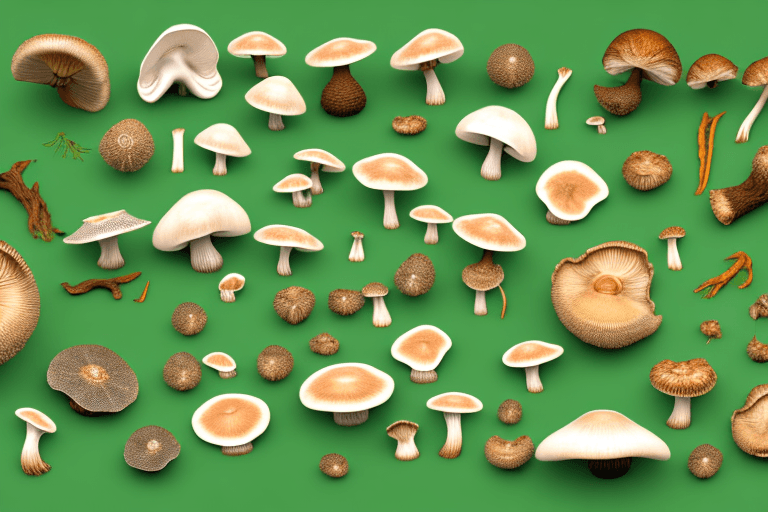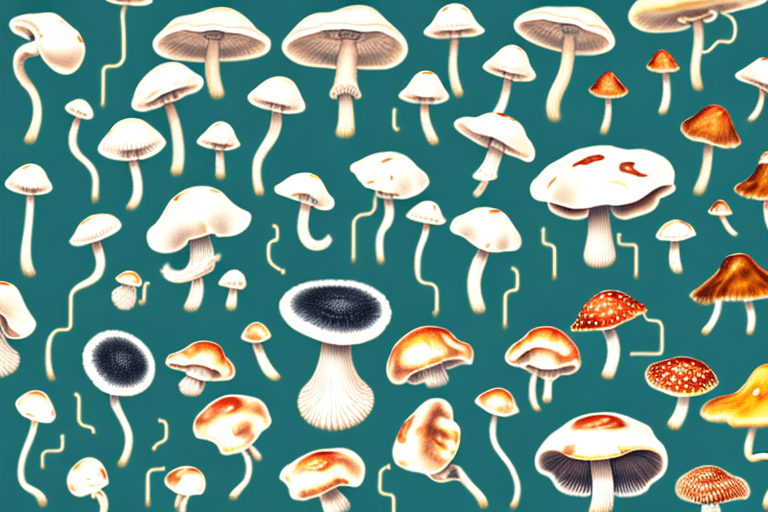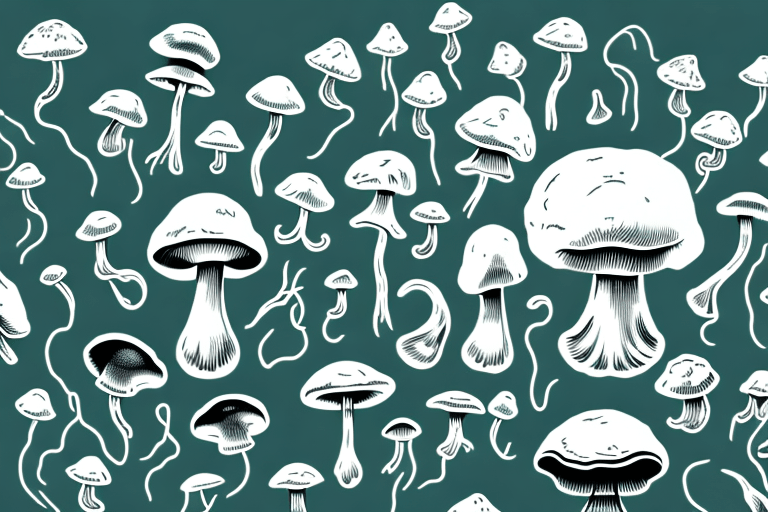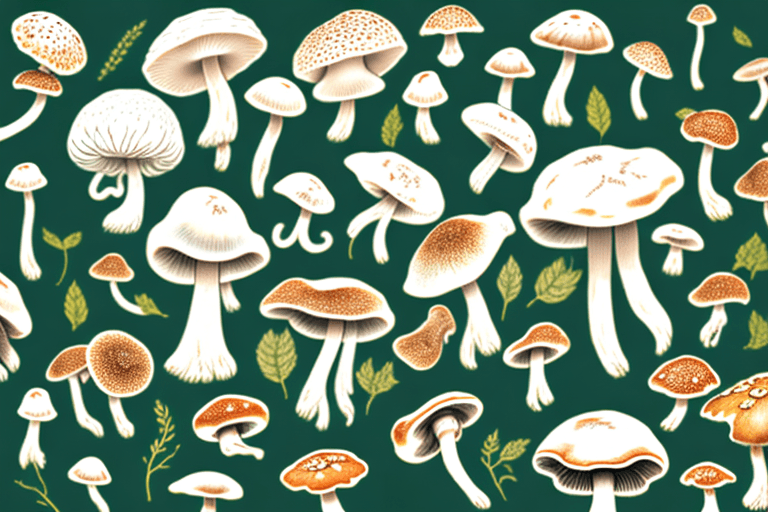
Mushroom Extract: Functional Mushrooms Explained
Functional mushrooms have been used for centuries in traditional medicine, and modern science is now catching up to their potential health benefits. This glossary entry will delve into the world of functional mushrooms, focusing on the extraction process and how these extracts can be utilized for their medicinal properties.Functional mushrooms are a group of fungi that are known for their health-promoting properties. They are different from the common culinary mushrooms we often consume, as they contain bioactive compounds that can have various effects on our body. The most well-known functional mushrooms include Reishi, Lion's Mane, Chaga, and Cordyceps, among others.Understanding Functional MushroomsFunctional mushrooms are unique in that they have been found to contain a variety of compounds that can support health and well-being. These include polysaccharides, terpenoids, phenolic compounds, and other bioactive molecules. The specific compounds and their concentrations can vary widely between different species of functional mushrooms, contributing to their diverse range of potential health benefits.These mushrooms are often consumed in the form of extracts, which are concentrated forms of the mushrooms that have been processed to enhance their bioavailability. This means that the beneficial compounds are more readily absorbed and utilized by the body. The extraction process can involve various methods, including hot water extraction, alcohol extraction, or a combination of both.Types of Functional MushroomsThere are numerous types of functional mushrooms, each with their unique set of health-promoting properties. Some of the most well-known include Reishi, known for its immune-supporting properties; Lion's Mane, which is believed to support brain health; Chaga, known for its high antioxidant content; and Cordyceps, which is often used for its energy-boosting effects.Other notable functional mushrooms include Turkey Tail, Shiitake, Maitake, and Agaricus blazei. Each of these mushrooms has been studied for their potential health benefits, ranging from immune support to anti-cancer properties. However, it's important to note that while the research is promising, more studies are needed to fully understand the potential of these functional mushrooms.Health Benefits of Functional MushroomsFunctional mushrooms have been studied for a wide range of health benefits. These include immune support, brain health, energy enhancement, stress relief, and even potential anti-cancer properties. The specific health benefits can vary depending on the type of mushroom and the specific compounds it contains.For example, Reishi mushrooms have been found to contain compounds that can support the immune system and may have anti-cancer properties. Lion's Mane mushrooms contain compounds that can support brain health and may help to improve cognitive function. Cordyceps has been used in traditional medicine for its energy-boosting properties, and modern research has found that it may help to improve exercise performance.Mushroom Extraction ProcessThe extraction process is a crucial step in the production of functional mushroom supplements. This process involves breaking down the cell walls of the mushrooms to release the beneficial compounds. There are several methods of extraction, including hot water extraction, alcohol extraction, and dual extraction, which uses both water and alcohol.Hot water extraction is often used for mushrooms that contain water-soluble compounds, such as polysaccharides. This process involves boiling the mushrooms in water to release these compounds. Alcohol extraction, on the other hand, is used for mushrooms that contain alcohol-soluble compounds, such as terpenoids. This process involves soaking the mushrooms in alcohol to extract these compounds.Hot Water ExtractionHot water extraction is a common method used in the production of functional mushroom extracts. This process involves boiling the mushrooms in water for a certain period of time. The heat and water work together to break down the cell walls of the mushrooms, releasing the beneficial compounds.Once the extraction process is complete, the liquid is then strained to remove any solid material. The remaining liquid, which contains the extracted compounds, is then concentrated into a powder form. This powder can then be used to create various types of functional mushroom supplements, including capsules, tablets, and powders.Alcohol ExtractionAlcohol extraction is another common method used in the production of functional mushroom extracts. This process involves soaking the mushrooms in alcohol, which helps to extract the alcohol-soluble compounds. The alcohol used in this process is typically ethanol, which is safe for consumption.After the extraction process, the alcohol is then evaporated, leaving behind the extracted compounds. These compounds are then concentrated into a powder form, which can be used to create various types of functional mushroom supplements. Alcohol extraction is often used for mushrooms that contain terpenoids, which are known for their potential health benefits.Using Mushroom ExtractsMushroom extracts can be used in various ways, depending on the specific type of extract and the desired health benefits. They can be consumed orally in the form of capsules, tablets, or powders, or they can be added to foods and beverages. Some people also use mushroom extracts topically, applying them directly to the skin for their potential skin health benefits.When using mushroom extracts, it's important to follow the recommended dosage instructions. The specific dosage can vary depending on the type of mushroom, the extraction method, and the concentration of the extract. It's also important to consult with a healthcare provider before starting any new supplement regimen, especially for individuals with underlying health conditions or those who are pregnant or breastfeeding.ConclusionFunctional mushrooms offer a wealth of potential health benefits, thanks to their unique bioactive compounds. The extraction process plays a crucial role in making these compounds more bioavailable, allowing us to reap the benefits of these incredible fungi. Whether you're looking to boost your immune system, enhance your cognitive function, or simply improve your overall health, functional mushroom extracts could be a valuable addition to your wellness routine.As with any supplement, it's important to do your research and consult with a healthcare provider before starting any new regimen. While the research on functional mushrooms is promising, more studies are needed to fully understand their potential. However, with their long history of use in traditional medicine and their growing popularity in the wellness world, functional mushrooms are certainly worth exploring.
